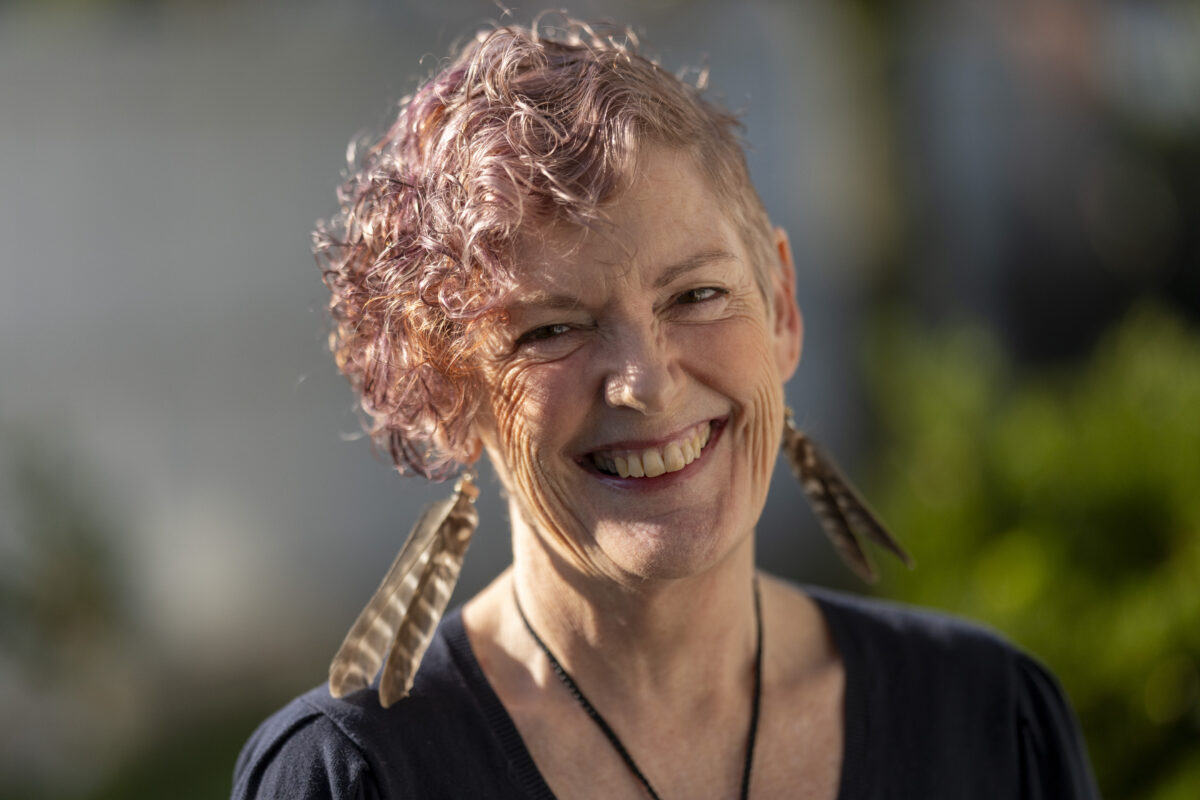After a lifetime of fighting for other people’s lives, Māori nurse and health researcher Jacquie Kidd (Ngāpuhi) is facing the end of her own.
Diagnosed last year with bowel cancer at just 58 — two years shy of the aged-60 threshold for free screening — Kidd is not so much philosophical as resigned. Weary, after decades of fighting for equitable cancer outcomes for Māori.
“I don’t feel furious because I feel it was inevitable – why should I be any different to anybody else?” the Auckland University of Technology (AUT) professor tells Kaitiaki Nursing New Zealand.
It’s news to few that Māori are devastatingly and disproportionately hit by illness. Māori die on average seven years earlier than non-Māori. Māori are 20 per cent more likely to get some form of cancer — and twice as likely to die from it. Bowel, breast, lung, prostate, cervical — across the board, the body, Māori have been dealt an appallingly grim hand.
‘Had screening been introduced for Māori when it should have been, I would probably have been caught with a polyp and I would not now have terminal cancer.’
The reasons are complex — colonisation, subsequent loss of resources, poverty, institutional racism and intergenerational mistrust in a culturally unsafe health system that pays little heed to the Māori concept of hauora which embraces tinana (body), wairua (spirit), whānau (social wellbeing) and hinengaro (mental wellbeing). All these, says Kidd, combine to lead whānau to reject health services — or delay accessing them until in desperate need, often too late.
Some fixes, however, are breathtakingly simple — such as lowering the free cancer screening threshold for Māori.
In 2017, after several years of talk, regional pilots, cost-benefit analyses and just the painfully slow grind of health bureaucracy, a national bowel screening programme was launched for those aged 60-74.
Six years on, the eligible screening age for Māori and Pasifika — Pacific people also endure significantly higher cancer rates at a younger age — will finally drop to 50 later this year. A Te Whatu Ora spokesperson confirmed to Kaitiaki it planned to lower the threshold nationally from late 2023.
For Kidd, the move is achingly bittersweet.
“Had screening been introduced for Māori when it should have been, I would probably have been caught with a polyp and I would not now have terminal cancer.”
‘You’re going to kill people because of the way you’ve structured it.’
Calls from Bowel Cancer New Zealand and health advocates for equity-based thresholds were ignored. “We knew what ages we needed to look at, had the evidence for it, but the later age was established anyway,” recalls Kidd.
“From that moment . . . so many of us were advocating and saying ‘you’re going to kill people because of the way you’ve structured it’.”
What’s good for Europeans remains Aotearoa’s “unspoken starting place” for cancer screening, Kidd believes.
Currently, free national screening only exists for bowel, breast and cervical cancers in Aotearoa. And while only bowel cancer screening, so far, is adapting its threshold, cervical cancer screening will, from September, offer self-testing at home which is likely to get more uptake from Māori, says Kidd.
Fears of racist ‘backlash’
For Kidd, the six-year delay has been deeply frustrating — even before her own diagnosis. She says it was largely due to fears of an anti-Māori backlash. In a cancer research group she was part of, she challenged them: “Why can’t we do this? Surely you realise the science is saying we need a lower screening rate?”
“Nobody had the appetite to deal with the racist backlash that would happen — this is Pākeha professors and doctors who don’t have the appetite for dealing with that. It’s not Māori saying: ‘We’re the ones who are going to get the backlash’.”
‘Don’t apologise for being Māori. Don’t apologise for needing something different than what the system is providing for you.’
That attitude — “giving in to the power of the dominant culture’s belief structures” — is exactly what systemic racism is, says Kidd, a past member of Te Rūnunga o Aotearoa NZNO.
There were also barriers due to lack of infrastructure — a hard-hearted reluctance to deal with the all the extra work and surgeries that would be needed once the full extent of cancer rates emerged. In other words, a head-in-the-sand approach Kidd describes as “just nuts”.
“‘If we screen this many people, we’re going to have to come up with this many colonoscopy spaces and this much follow-up care . . . So we need to keep our heads in the sand and just adapt the screening criteria to make sure we don’t go too far over what we can cope with’.”
‘Everything happened really fast’
It was early 2022 when Kidd began experiencing pain and bleeding — “really small amounts, but the pain was the thing which worried me the most”.
She put it off for a few months — “I thought, like everyone, that the symptoms were fairly mild and that they’d go away if I improved my diet and attended to stress levels” — but eventually asked a GP to refer her for a colonoscopy. As she was too young for free screening, he only referred her as she had private insurance. After that, “everything happened really fast”.
‘The worst thing that can happen to a lot of the people I talk to is being stuck in a hospital without any of their cultural needs being attended to and dying that way.’
The colonoscopy found a tumour in her bowel — but also clear margins and lymph nodes and no apparent metasisis.
“I was going through the whole ‘oh my God I’ve got cancer I’m gonna die’ thing as well as ‘I need to fix my work up as I’m gonna be out for a while’ and I need to tell the kids – what am I gonna tell the kids? And there was all of that and that all happened within six days.”
A week later, Kidd was having surgery to remove her lower bowel and “they told me I would be fine”.
Sense of inevitability
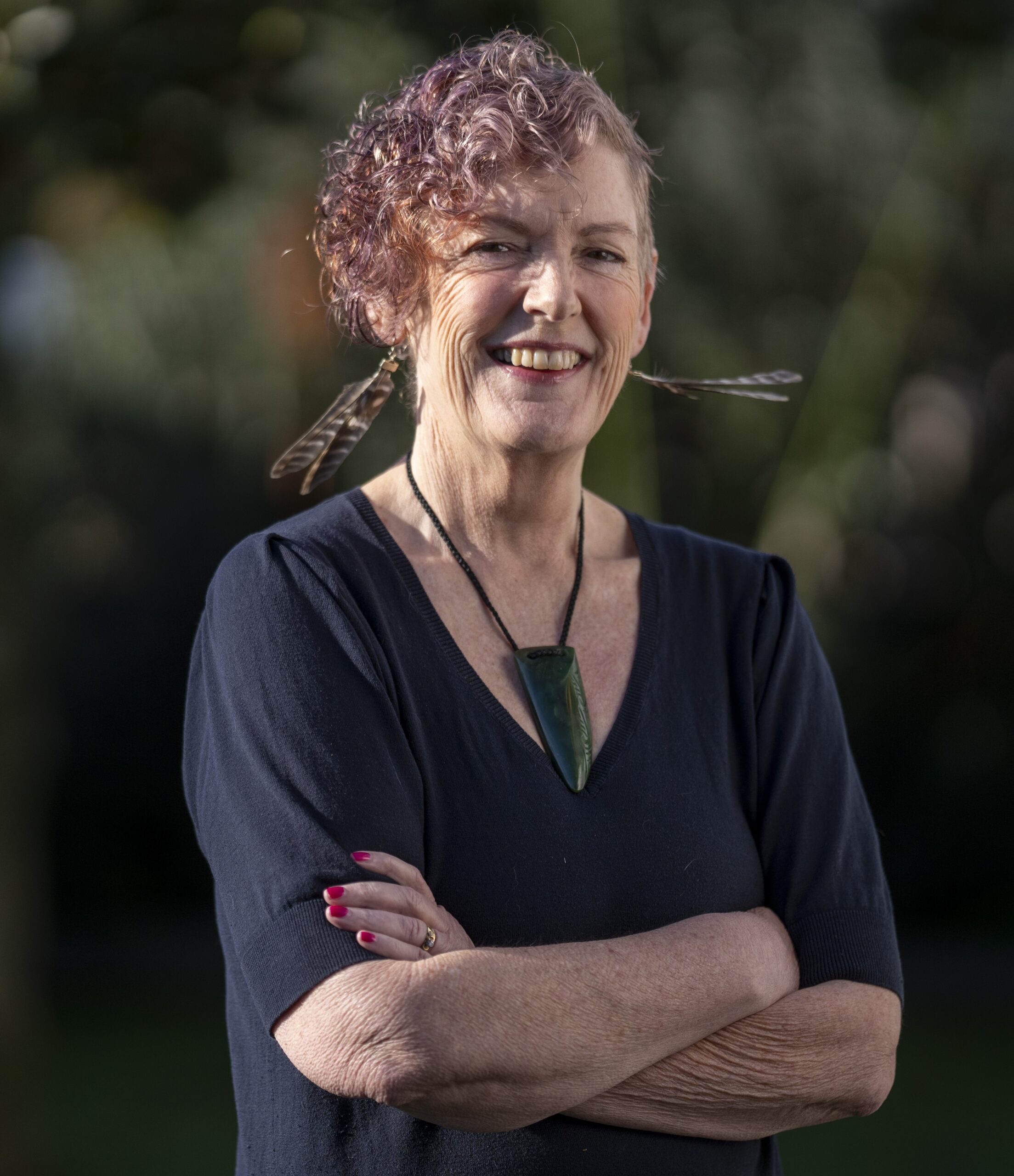
As a researcher, Kidd said she was always coming up against this “really challenging” idea of inevitability among Māori whānau, when it came to poor health and early death.
“It’s the kitchen table stories, that say, ‘This is just what happens in our whānau – we get diabetes, we get breast cancer, we get ovarian cancer – we don’t live until we’re 60.’ It is normalised,” Kidd says.
“But layered with that, or even underpinning that, is this idea that dying is not the worst thing that can happen to you. The worst thing that can happen to a lot of the people I talk to is being stuck in a hospital without any of their cultural needs being attended to and dying that way – dying separated from all the things that matter.”
‘I knew I wanted something for my girls, my daughters.’
And that’s why Māori don’t go and see their GP — fear of how they’ll be treated, by a racist system, she says.
“It’s not low health literacy, it’s a really complex cultural literacy that leads them to make [such] decisions.”
Kidd’s Ngāpuhi kuia (grandmother) Tirohia Amy, wasn’t diagnosed with Parkinson’s disease until it was very advanced and “clear to the whole whānau that something was going on”, she says.
“She’d resisted and hidden it for years because she didn’t want to let the doctors into her life. You can trust you’re going to be treated badly – they couldn’t say her name. They didn’t value the things that she valued. She didn’t want to go there.”
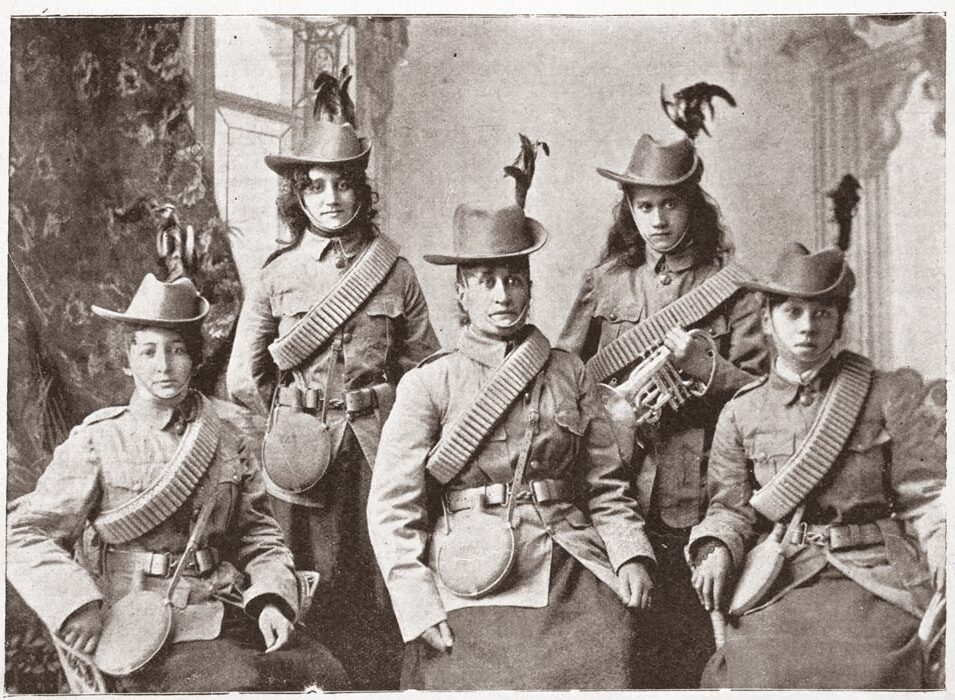
Poverty, too, she says, plays a part. People ask themselves if they can afford to go to the doctor, not just because of the cost and need to take time off work, but because of the implications of serious illness — financial, time and energy. “Can I afford to hear what the doctor is going to say?”
A significant diagnosis “is a pervasive consumer of all your resources, including but not limited to money”.
Culturally unsafe
Kaumātua had warned Kidd for years that working with the health sector meant she would have to “leave my tikanga at the door”.
“With my own illness, I’ve come to a much deeper understanding of what that actually means and why people are voting with their feet and not accessing health care. Because when you get to a certain point, tikanga is far more important.”
When Kidd was admitted for surgery, she was asked if she had any cultural needs. She said no, thinking she would have enough support from her whānau and friends.
‘The health sector chops you into mental, physical and sometimes behavioural – never spiritual and never whānau.’
“But what I didn’t realise was that by saying no they didn’t pay any attention to closing the bathroom door, to not putting waste products on my food tray, to taking care with bedding and pillows — I didn’t realise they thought that stuff was still okay, I thought we dealt with that back in the ’80s.”
Kidd describes herself as a “second-chance nurse”. She left school at 16, started nurse training, dropped out, became a mother, then returned in her early 20s, going into mental health nursing. “I knew I wanted something for my girls, my daughters.”
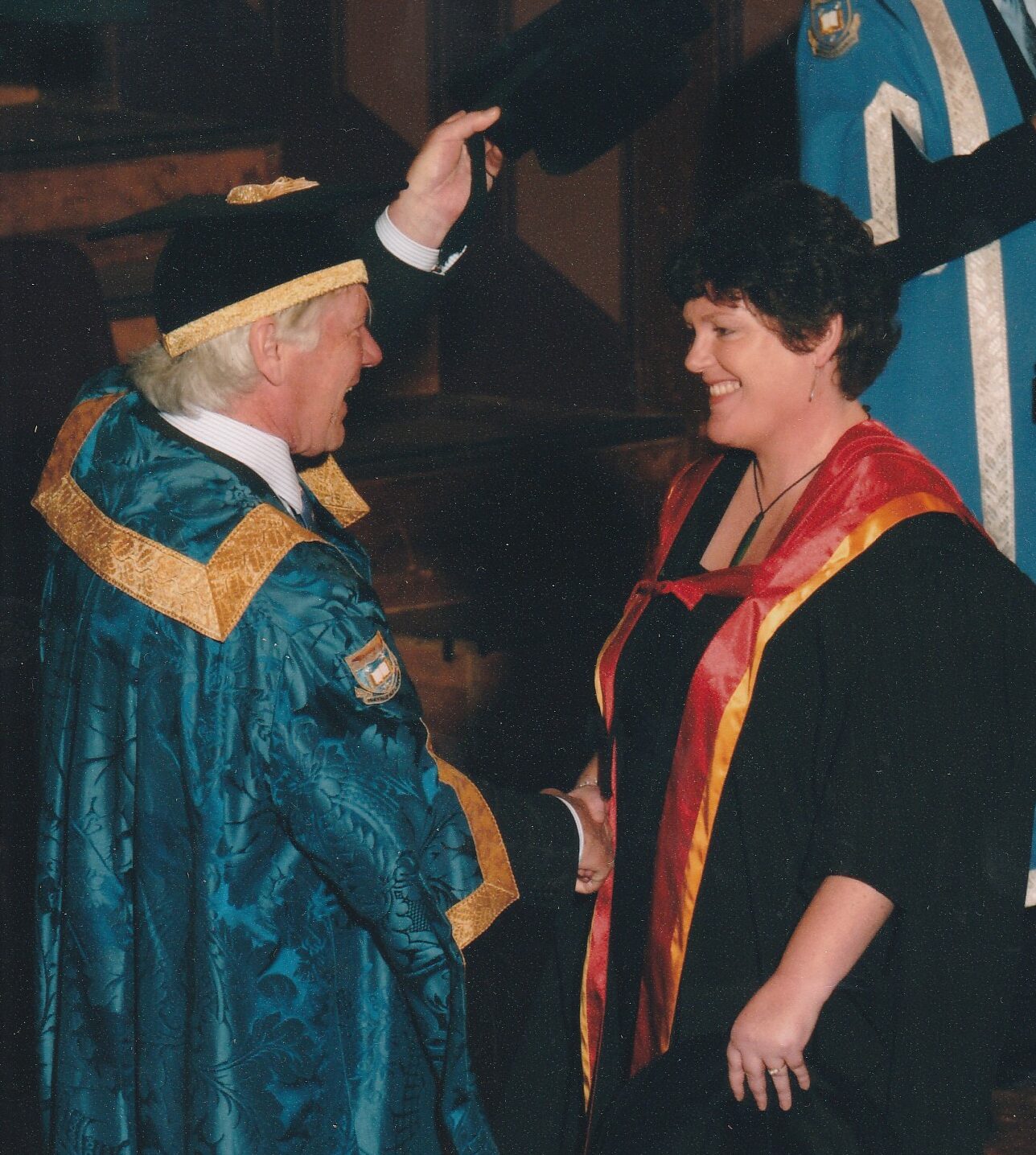
Training as a young single mum in the late ’80s at what was then the Hawke’s Bay Polytechnic, Kidd was quickly confronted with racism.
“Lecturers [ were] standing in front of us talking about ‘them, they’. ‘They don’t really care, they have lots of illnesses, don’t really look after themselves, they make poor choices, they have babies really young’. I was like ‘hang on, she’s talking about my grandmother’. And then it was ‘wait on, she’s talking about my mother!’ And then a little while later ‘actually this is me’.”
Her mum had been 17 when she was born and Kidd 19 when she had the first of her four children.
She is now a professor, with a PhD under her belt — and this a story she thinks young people need to hear. “You don’t ruin your life if you don’t do well at high school – some of us are just late bloomers. It takes a while to decide what we want to do and find the relevance in it.”
Facing this attitude daily, Kidd made a conscious decision to became more vocal in support of her Māori peers.
‘You can either ignore this and cruise on with your life at surface value. Or do something about it.’
“To . . . listen to someone claiming that that was about poor choices and accidents and wanting to stay on a benefit and all the rest of it – I think there’s some work we need to do really.”
While she doesn’t see herself as an activist, she has gone on to “amplify whānau voices in ways and spaces that can support change”. Her research, she says, has always focused on whānau-based understanding of problems and their solutions.
Her anti-racism work — she is involved with a project to eliminate racism in the health sector — is an unfortunate byproduct of her quest for equitable outcomes for Māori, “and I really wish it wasn’t”.
“I’d always had a certain amount of political awareness but because I appear white, I hadn’t had to confront racism. And what my nursing training did was put it right in front of me and say: ‘You can either ignore this and cruise on with your life at surface value. Or do something about it.”
‘Mostly we’re busy and we just go with the flow – and going with the flow is racism’.
Her non-Māori appearance also gave her access to the Pākehā world. “I could get into spaces and say things that they couldn’t. And I probably stayed in that space actually.”
There was little attention to a kaupapa Māori approach to nursing in the ’80s. Cultural safety was just beginning to emerge as a concept in 1989, but it was fraught and clumsily applied by mostly Pākehā lecturers. Kidd says she was “both really lucky and traumatised” as one of the first nurses to experience cultural safety training within the nursing curriculum.
“Can you imagine what that was like? We’re sitting in this classroom and suddenly told we’re going to be going to a marae – with very little preparation,” says Kidd. “And it was very much Pākehā nurses trying to teach Māori things to a mostly Pākehā group – and yeah, the backlash was intense.”
Kidd did get lucky in being taught by the late Irihapeti Ramsden, a pioneer in kawa whakaruruhau when doing her post-graduate studies at Otago Polytechnic.
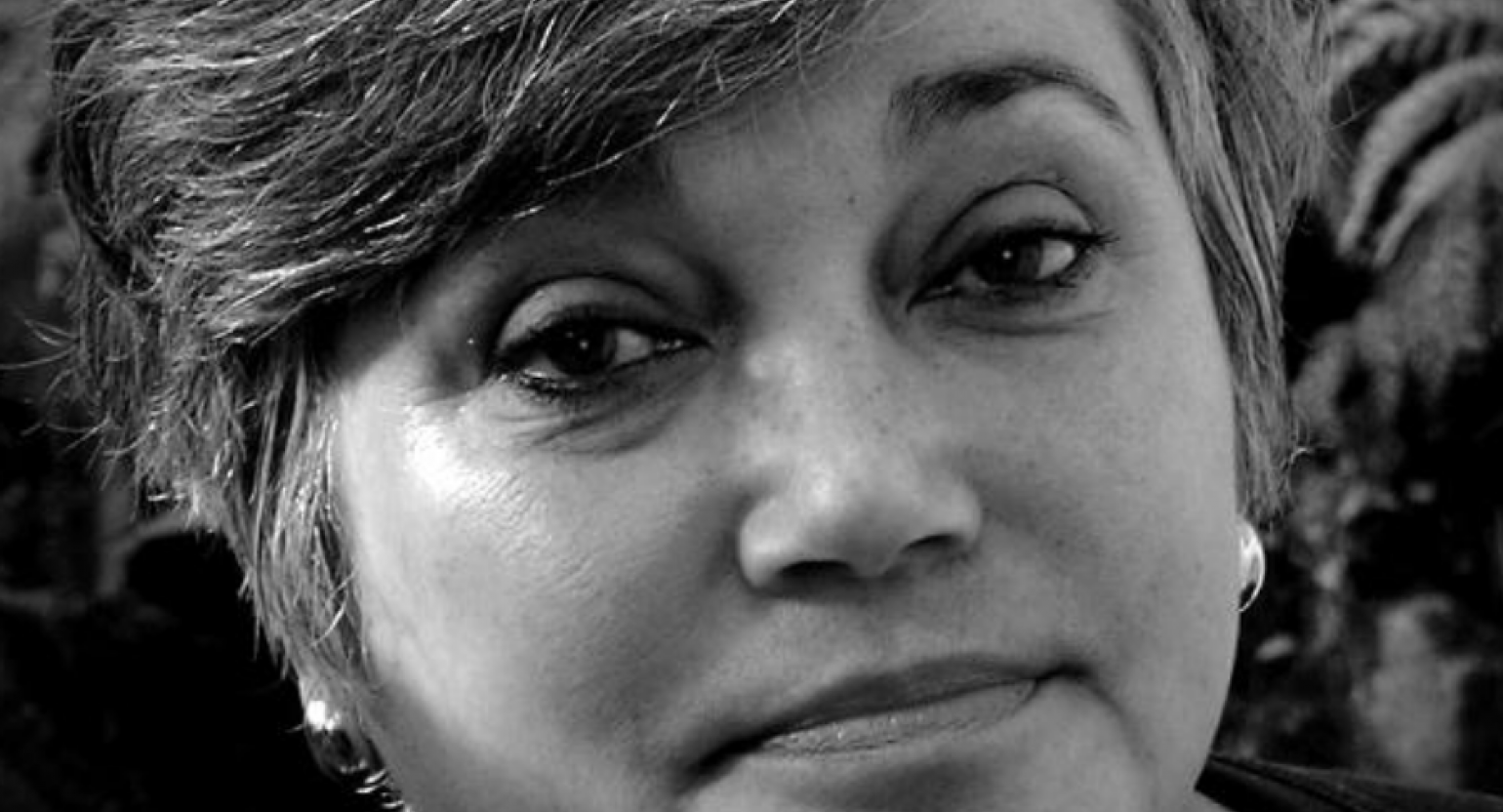
As well as culturally safe pedagogies (teaching methods) and keeping tauira safe, kawa whakaruruhau is about fostering nursing practice that respects and responds to whānau Māori, says Kidd.
Ramsden herself died in 2003 from breast cancer at just 57.
‘Baked in’ racism
With so much work put in over the years, by so many, to create a safer health system for Māori, Kidd is deeply frustrated so little appears to have changed in Māori experiences and outcomes.
“I don’t see cultural safety in nursing practice. I see pockets of it but on the whole, the institutions that we work in are so incredibly powerful and racism is so baked into it that mostly we’re busy and we just go with the flow – and going with the flow is racism.”
‘Allyship these days doesn’t look like the tearing your hair out crying stuff. Allyship is more like being staunch.’
Asked if she had a message for today’s nursing tauira, eloquent Kidd is momentarily lost for words. Then she says the most powerful thing they can do is maintain their Māori support structures — and demand better.
“I would say more than anything to them — don’t apologise for being Māori. Don’t apologise for needing something different than what the system is providing for you.”
And, she feels sorrow at the slow pace of change. “I’m just really, really sorry that we haven’t been able to make that much difference.”
“That’s the worst of it — you do this work thinking ‘surely. . . someone will listen’. But there’s still the excuses — we don’t have the resources, we can’t build our Māori workforce because we don’t have enough Māori nurses, we can’t teach them in a culturally safe way because there aren’t enough Māori lecturers.
“How do we get Māori lecturers? We introduce a culturally safe space so they will stay.”
Non-Māori ‘allies’
In an academic hui “of mostly white women” recently, Kidd was arguing for cultural safety across the health system. “Somebody said ‘oh we haven’t got the resources’. I said ‘let’s have a look at where the resources are sitting’.”
‘I have time. I have at least a couple of years, maybe a little bit longer.’
It can’t be all on Māori shoulders. Tauiwi — non-Māori — nurses and leaders need to be allies, they need to be doing health equity, decolonisation, anti-racism and cultural safety “every day”, says Kidd.
“Allyship these days doesn’t look like the tearing your hair out crying stuff. Allyship is more like being staunch. Being able to ask people to explain their assumptions so that they can be unpacked. Being really clear about where you stand in your own privilege.”
‘No way out’
After successful surgery on her primary tumour, Kidd had tested clear for any remaining cancerous cells. So, it was a shock when a precautionary follow-up scan a few months later found the cancer was not only back, but had spread to her lungs.
“I have a terminal diagnosis. There is no way out. But it’s not immediate – I have time. I have at least a couple of years, maybe a little bit longer.”
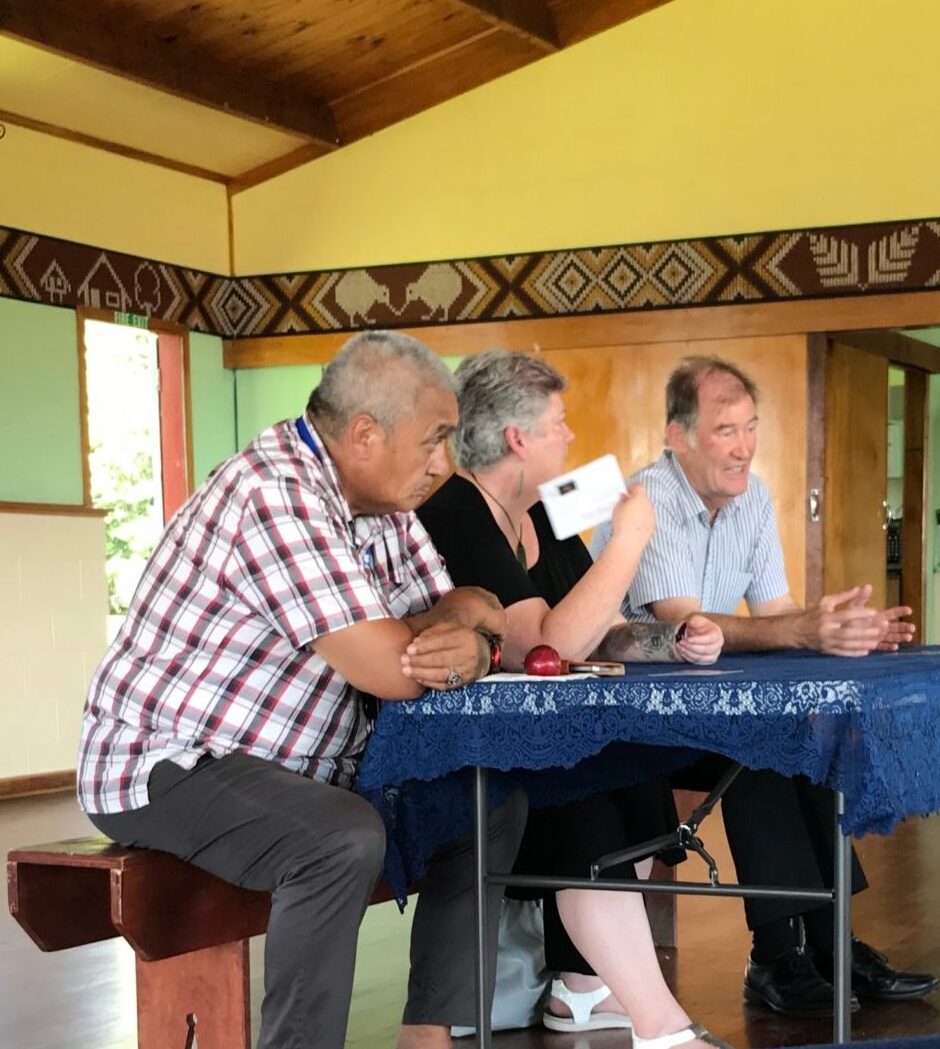
Her work on anti-racism and Māori cancer equity continues and is “really meaningful” as her focus now turns to legacy-building.
She and AUT associate professor Heather Came are collaborating on a project to eliminate racism and inequities in the health sector called: ‘Re-imagining anti-racism theory‘. For this, Kidd has been asking Māori participants what a non-racist health service might look like — but responses so far suggest the entire health system is based on a racist concept.
“The health sector chops you into mental, physical and sometimes behavioural – never spiritual and never whānau – and then you have to choose which bit of you is unwell in order to go see somebody who doesn’t care about the rest of you.”
Other projects include Hā Ora, Māori-led research into earlier diagnosis of lung cancer, and Oranga Tū, a project on community support for tāne with prostate cancer and their whānau, (which led to a “gorgeous’ TVNZ documentary).
‘If you embrace the whānau, then your workload goes down, because you’re not fighting, you’re not pushing your way uphill.’
Kidd also supports several “amazing” Māori post-graduate nursing students at AUT. “Just by standing there, I create space for Māori students — I do a lot of fiddling in the background to try and create safe spaces, and advocate for them.”
‘Whānau are the treatment’
Kidd has a message for non-Māori nurses too — be kind, welcome whānau into the patient space and “pay attention to the kids!”
Māori often avoid seeking care, as they fear they and their whānau will not be welcomed in a culturally safe way.
“We need to break that cycle. And the way you break that cycle is be kind to the kids who are coming into visit and show them that hospital doesn’t have to be a cold, horrible, nasty place.”
Don’t treat whānau like a nuisance — “for Māori, whānau are the treatment”, says Kidd.
“If you embrace the whānau, then your workload goes down, because you’re not fighting, you’re not pushing your way uphill. You’re working with the group of people who are most invested in making things work.”



